Volkswagen, RBS, Brexit: Business news in brief Tuesday 23 August 2016
German car-maker holds crisis talks; Brexit could worsen Britain's energy supply problems; £12bn lawsuit looms for RBS
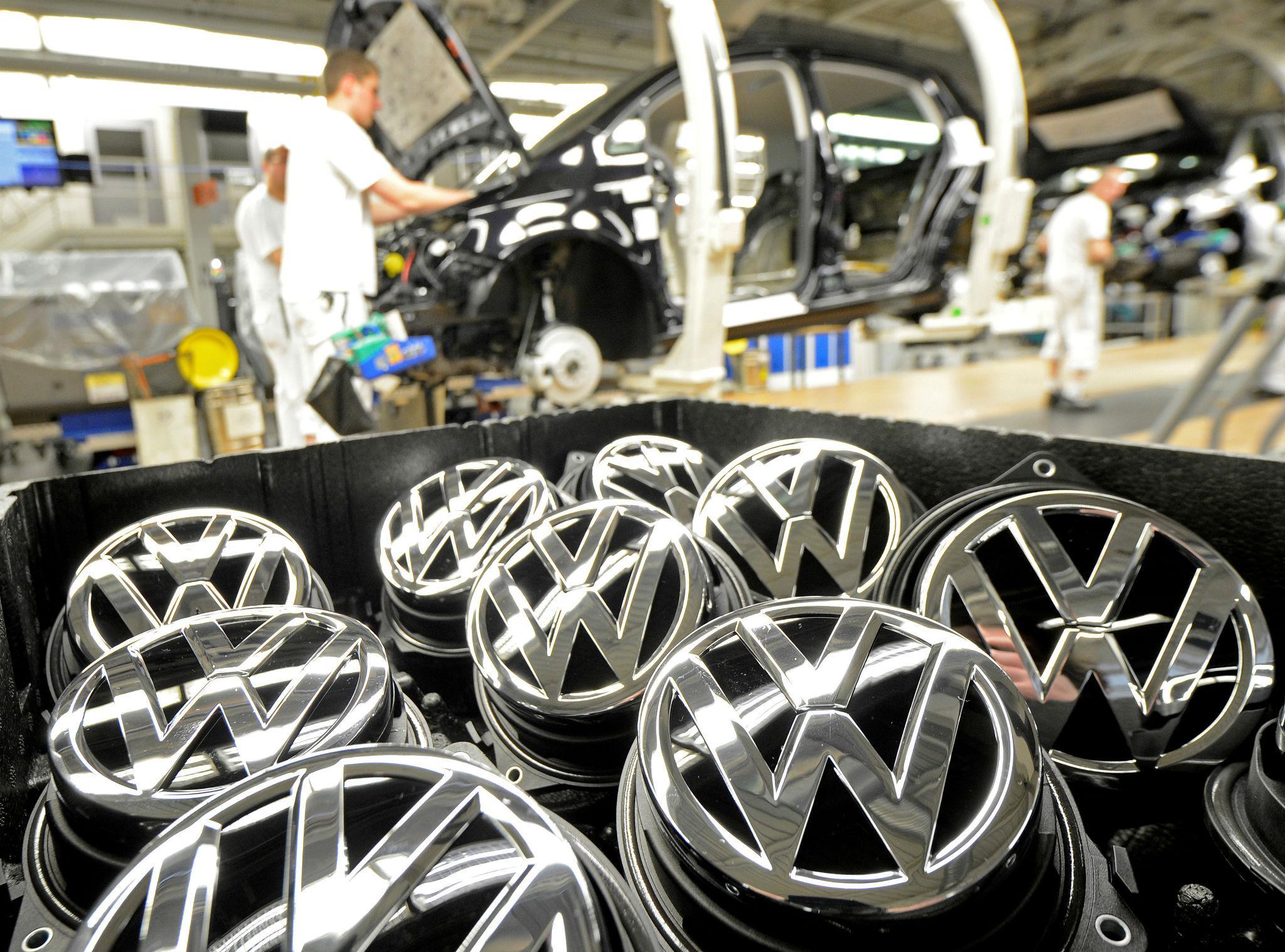
Your support helps us to tell the story
From reproductive rights to climate change to Big Tech, The Independent is on the ground when the story is developing. Whether it's investigating the financials of Elon Musk's pro-Trump PAC or producing our latest documentary, 'The A Word', which shines a light on the American women fighting for reproductive rights, we know how important it is to parse out the facts from the messaging.
At such a critical moment in US history, we need reporters on the ground. Your donation allows us to keep sending journalists to speak to both sides of the story.
The Independent is trusted by Americans across the entire political spectrum. And unlike many other quality news outlets, we choose not to lock Americans out of our reporting and analysis with paywalls. We believe quality journalism should be available to everyone, paid for by those who can afford it.
Your support makes all the difference.VW holds crisis talks as production problems deepen
Volkswagen held emergency talks with a supplier over a dispute that’s forced VW to halt production of its best-selling Golf and Passat after the parts maker took the unprecedented step of cutting off deliveries of transmission and seat components.
The shutdown widened on Monday to six factories across Germany, impacting 27,700 employees, or about 10 per cent of VW’s domestic workforce. Commerzbank estimated the stoppage, now in its fifth day, could cut profit by as much as €70m (£60m) a week.
While the automaker-supplier relationship can be fraught with tension, it’s almost unheard of for a parts maker to simply stop delivering components. The two sides are meeting Monday to try to resolve the dispute on their own as they also battle with one another in court.
The feud over a contract with German subsidiaries of Bosnia-based Prevent Group risks adding to VW’s woes and undermining efforts to lift sagging sales and profit at its namesake brand.
“We are really surprised that the fight is escalating to a level where production is severely impacted,” Sascha Gommel, a Commerzbank analyst, said in a note to clients. “The dispute is coming during an inconvenient time for VW,” with its reputation still marred by the emissions-cheating scandal.
The stock has declined 11 per cent this year, valuing the German manufacturer at €62bn (£53bn).
According to Prevent, Volkswagen was seeking to pass on the costs of the crisis by squeezing suppliers, and the parts maker was forced to take a stand to secure its survival. VW is under pressure to reduce spending as it grapples with lawsuits and regulatory investigations after disclosing last September that 11m diesel-powered cars were equipped with software designed to cheat on emissions tests. It’s set aside €18bn (£16bn) to cover the scandal’s costs.
Bloomberg
Brexit worsens Britain’s energy supply risk as coal retirement looms
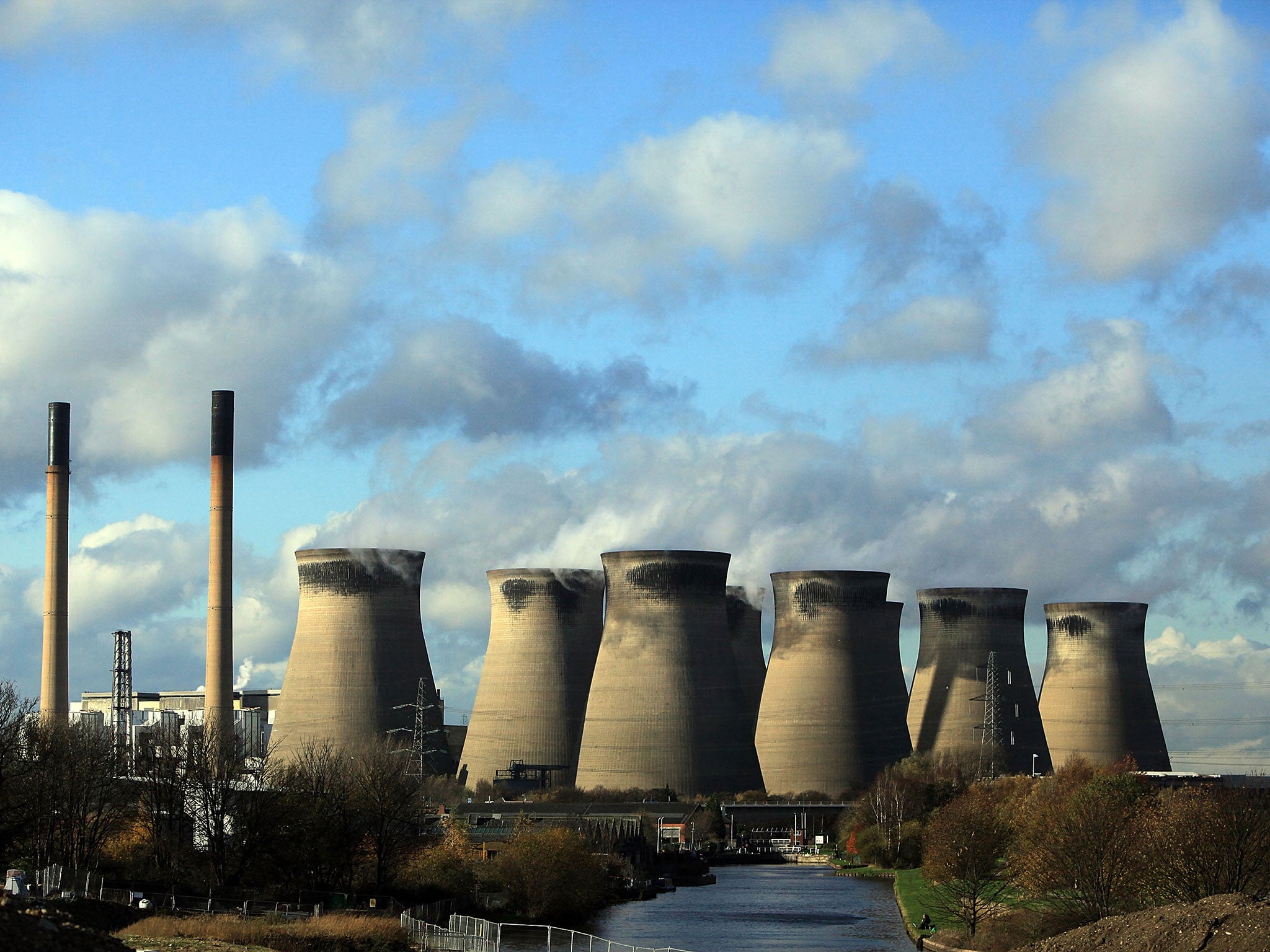
Britain’s decision to leave the European Union may push back its planned exit from coal, a mainstay in the nation’s energy supply for more than a century.
As the region’s second-biggest economy plans to close its last coal-fired power plant in less than a decade, it will be forced to rely more than ever on imports of natural gas and electricity.
By leaving the EU, Britain could lose easy access to foreign supplies through the bloc’s single market, just as it plans to almost triple the number of power cables linking it to European nations by 2022.
UK utilities have closed coal plants that made up 9 per cent of total generation capacity in the past year, adding to a shrinking supply margin that forced the National Grid to pay about £150m to keep already idled stations on standby since 2014.
Some of the gap was meant to be filled by EDF’s £18bn Hinkley Point C reactor, now thrown into doubt by Theresa May’s call for more time to review the project.
“Brexit could make keeping the lights on more challenging,” said Alex Harrison, counsel at Hogan Lovells, who specialises in electricity markets and utilities. If security of supply is threatened, “we may even see coal-fired generation being kept on post 2025,” he said.
“The UK won’t be taken into account in decisions about the EU energy market and there is a real potential risk that Brexit will adversely affect Britain’s energy market,” Paul Dorfman, a senior research fellow at the Energy Institute, University College London.
“Keeping the lights on is non-negotiable, and the government has plans in place to ensure we always have enough supplies,” a spokesperson for the Department of Energy & Industrial Strategy said.
Even with capacity payments, coal fired-stations are under pressure, with plants unprofitable on a monthly basis since April. The facilities need £40-45 a kilowatt to make them profitable, more than double last year’s price, said Lakis Athanasiou, an analyst at Agency Partners.
Bloomberg
Samsung to launch refurbed phones to compete in developing markets

Samsung Electronics Co plans to launch a program to sell refurbished used versions of its premium smartphones as early as next year, according to a person with direct knowledge of the matter. The South Korean technology firm is looking for ways to sustain earnings momentum after reviving its mobile profits by restructuring its product line-up.
As growth in the global smartphone market hits a plateau, Samsung wants to maximise its cost efficiency and keep operating margins above 10 per cent.
The world's top smartphone maker will refurbish high-end phones returned to the company by users who signed up for one-year upgrade programs in markets such as South Korea and the United States.
Samsung would then re-sell these phones at a lower price, the person said, declining to be identified as the plan was not yet public.
A Samsung spokeswoman said the company does not comment on speculation.
It was not clear to what extent the phones would be altered, but refurbished phones typically are fitted with parts such as a new casing or battery.
Rival Apple’s iPhone has a re-sale value of around 69 per cent of its original price after about one year from launch, while Samsung's flagship Galaxy sells for around 51 per cent of the original price in the US market, according to BNP Paribas.
Refurbished phones could help vendors such as Samsung boost their presence in emerging markets such as India, where high-end devices costing $800 (£600) or so are beyond most buyers.
Apple sells refurbished iPhones in a number of markets including the United States, but does not disclose sales figures. It is trying to sell such iPhones in India, where the average smartphone sells for less than $90 (£68).
Bloomberg
Embattled RBS facing fight for its life as £12bn investor lawsuit looms
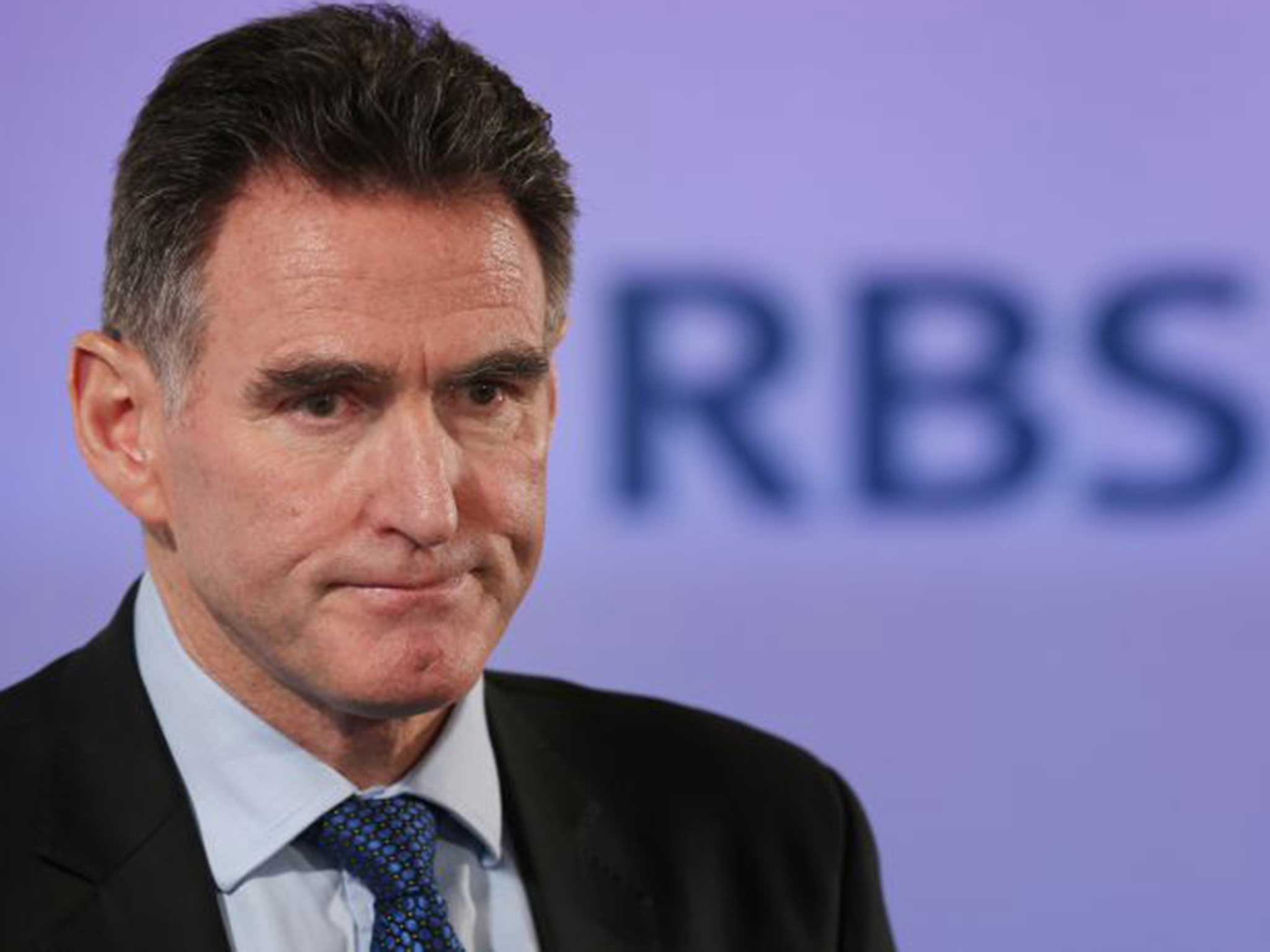
At an English country mansion lawyers for RBS sat down last month with representatives of angry shareholders to broker an end to what may end up being the costliest case in British legal history.
The meeting at The Grove, an 18-century estate near London, was convened to persuade investors to drop claims they were misled into stumping up £12bn just a few months before the bank's bailout in 2008.
The case could have huge implications for RBS's recovery as it risks adding £6bn to the lender's litigation bill, lawyers said.
By early 2008, bad bets on toxic mortgage debt and a highly leveraged takeover spree had left RBS's balance sheet in desperate need of capital, and management turned to investors for the ill-fated cash call.
More than 35,000 shareholders who took part allege RBS deliberately concealed the extent of its financial woes.
The bank succumbed to a £45.5bn bailout just six months later and has since failed to post an annual profit. The shares issued in the rights issue have lost 90 per cent of their value..
At the meeting at The Grove, RBS offered investors about £700m, according to two sources present, but the claimants reckon they should get £4bn in damages, plus £2bn in interest and legal fees.
“They are offering pennies when we are after pounds,” said one lawyer, who asked not to be named because the talks are confidential. “We are never going to meet in the middle.”
The next hearing is scheduled for 8 September. Fred Goodwin, former RBS chief executive, is likely to be called, dealing another blow to the lender's efforts to draw a line under its troubled past.
Ross McEwan, RBS Chief executive, has admitted he is worried about the damage the case could inflict on the bank's battered reputation but he has also said he could not agree to a settlement that was unreasonable and is ready to fight if the case reaches court.
Bloomberg
ChemChina Syngenta deal approved by US security panel
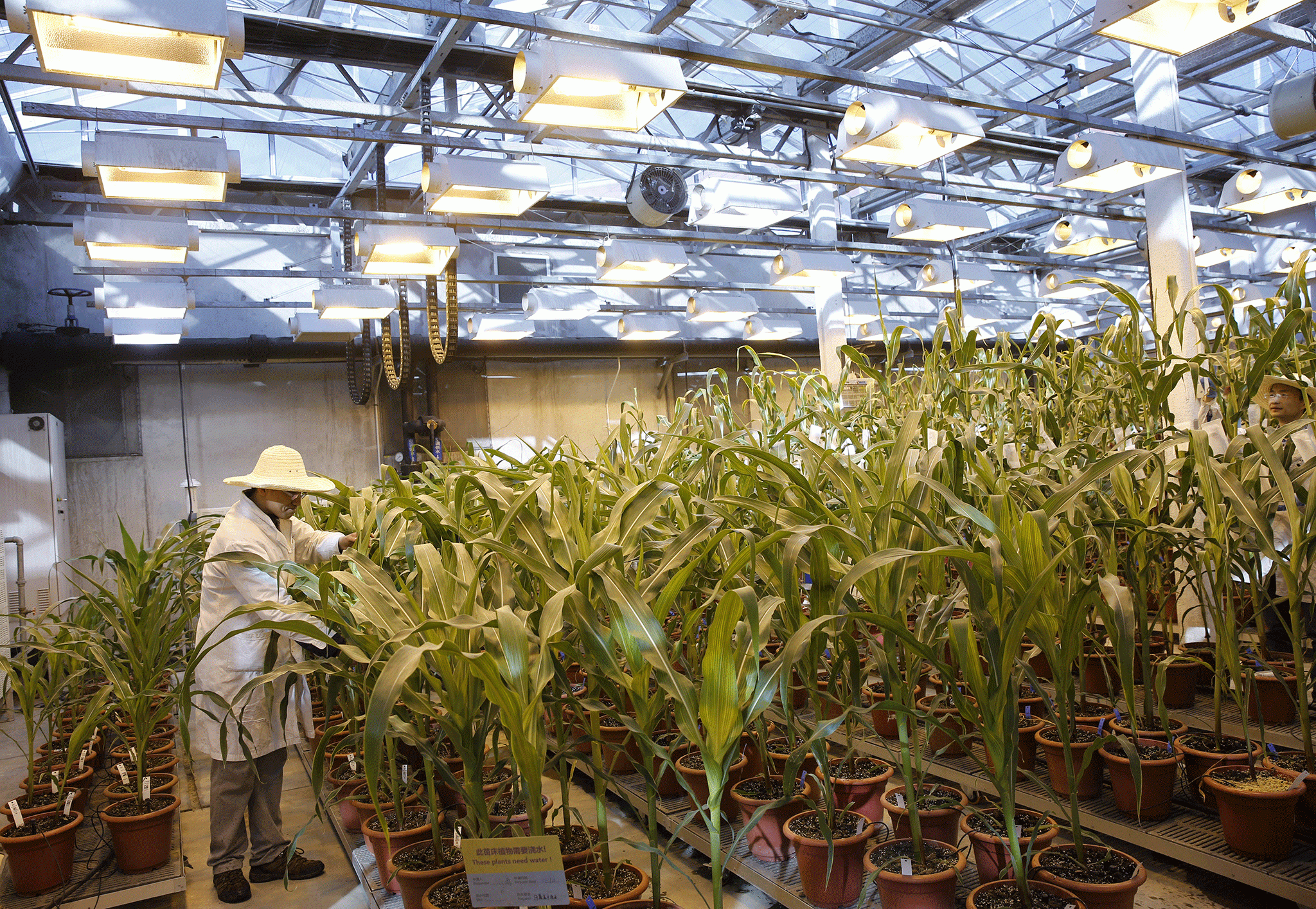
China National Chemical Corporation received approval from US national security officials for its $43bn (£33bn) takeover of Swiss chemical company Syngenta.
The Committee on Foreign Investment in the US (CFIUS), has cleared the transaction, the companies said in a statement. The deal, expected to be completed by the end of the year, is still subject to antitrust review by regulators worldwide, according to the statement.
Syngenta, which got more than a quarter of its revenue last year from seeds and crop protection in North America, would help transform state-owned ChemChina into a global pesticide and agrochemical giant.
The bid is leading a record wave of Chinese acquisitions that has prompted US officials to consider claims that some purchases could threaten national security.
CFIUS, which is led by the Treasury Department and includes officials from the Defense and State departments, reviews acquisitions of US businesses by foreign investors for risks to American security and can recommend to the president that deals be blocked.
The committee often imposes conditions on transactions before clearing them, such as restricting the foreign company’s access to parts of the US business.
Approval by CFIUS may trigger criticism in the US. A group of senators in March called on Treasury to closely scrutinize the Syngenta takeover, saying it could affect food security and safety as well as the US farm sector.
In June, Senator Chuck Grassley, a Republican from Iowa, called the deal “concerning” and said the US needs to consider “strategic questions” before approving the sale of agricultural assets to foreign governments.
TalkSport owner Wireless Group reports profit slump ahead of News Corp takeover
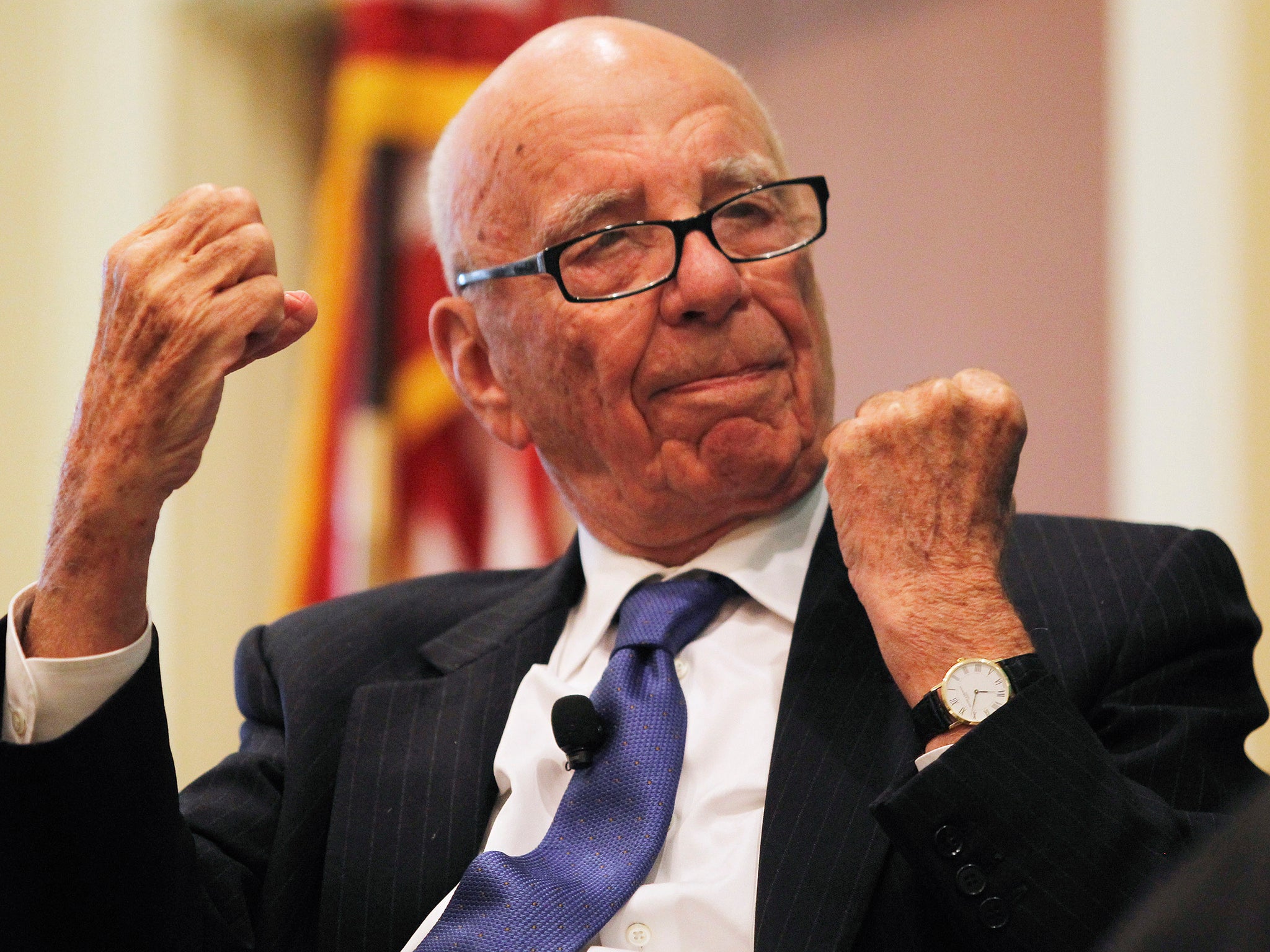
TalkSport owner, The Wireless Group, has seen profits slump ahead of a £220m takeover by Rupert Murdoch’s News UK.
The group, which owns Virgin Radio, Pulse, Talk Radio as well as local radio stations, increased revenues form £37m to £38.2m but pre-tax profits were down 10 per cent to £4.5m.
A boost from Euro 2016 for TalkSport was dampened by “softer” advertising revenues in the run-up to the EU referendum, Richard Huntingford, chief executive, said.
The takeover has 92 per cent approval from shareholders and is making good progress according to Huntingford.
TalkSport presenter Colin Murray quit the station after learning of the deal, saying it had “made my position unsustainable”.
Murdoch’s latest acquisition will give him access to the radio football market, currently dominated by the BBC. TalkSport won access to three audio packages for Premier League games this year.
Facebook shares could jump 20 per cent as ad growth continues apace
Facebook stock has the potential to climb by more than 20 per cent over the next year given the growing advertising revenue on its platforms, according to a report by financial analysts Barron's on Sunday.
The social media giant, which traded at just under $124 (£94) a share on Friday, has seen a recent acceleration in growth in part because of its increasing mobile ad load, or, the number of ads Facebook can serve up to its users, the report said.
Facebook also has other avenues of ad load growth, including Instagram, Messenger and WhatsApp, which have yet to fill up on ads, it said.
Wall Street expects daily average users, which are at 1.1 billion now, to reach 1.7 billion in four years. By then, Facebook will have learned more about how to turn its ads into transactions, leading to growth in the advertising rate it charges, Barron's said.
Reuters
Standard Chartered cuts African private equity team as economies struggle
The head of Standard Chartered's African fund, which has $800m (£608) invested, is set to leave the bank as it trims its private equity team on the continent, its global head of private equity said on Monday.
Peter Baird, who was appointed in 2011 has 20 years of experience in private equity and investment banking. It was not clear if he quit or was removed.
African economies have struggled over the last year with lower commodity prices, rising government debt and weakening currencies.
Many of Standard Chartered's investments are in Nigeria, where subdued oil prices have pushed Africa's biggest economy to the brink of recession and banks have wrestled with acute foreign exchange shortages.
Yemi Osindero, head of Standard Chartered's West Africa private equity business, is also leaving the bank, along with his colleague Nana Dankwa, to start an independent African fund.
Reuters
Join our commenting forum
Join thought-provoking conversations, follow other Independent readers and see their replies
Comments